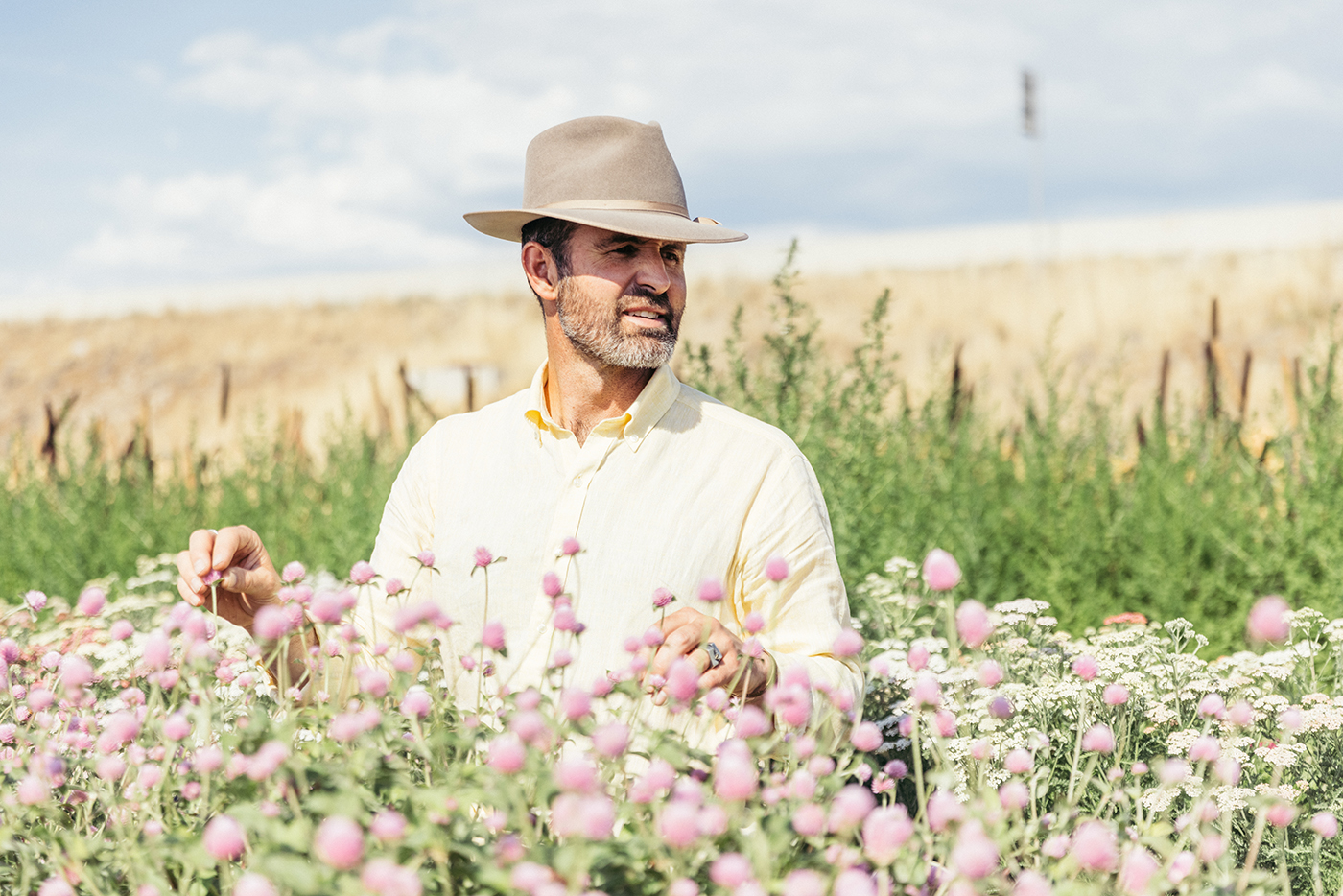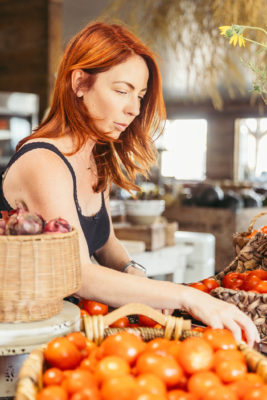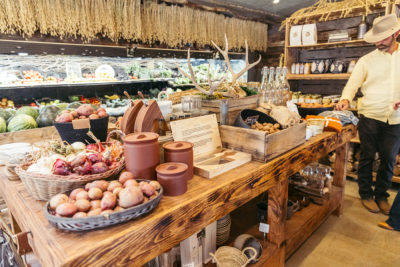
Return to the Earth at The Kinlands
Food: Interviews & Features
Oftentimes, people try to categorize the land known as The Kinlands into rigid boxes. Is it a vegetable or flower farm? A gardener’s market? Equine therapy? A summer camp?
The answer to that question—and the way land tenders Luke Petersen and Jen Winter refer to The Kinlands—is all-encompassing. Yes, visitors can buy fresh, high-vibe produce, pastries and home goods from the market on the property. Yes, they offer hands-on workshops and animal experiences to visitors of all ages. Yes, the Earth Smarts summer camps teach 5–12 year olds how to forage wild plants, bond with horses and make sun tea—but beyond that, there’s even more to discover.
This is why, with practices rooted in ancient philosophies and wisdom, Petersen and Winter gave The Kinlands its name. “We try not to use the word ‘farm’ purposefully because it invokes too many other thoughts that keep us from connecting to the land,” Petersen says. “When we stopped saying ‘farm,’ we were able to go into a place of wonder about what else this sacred space holds. Everyone belongs here, and it can become whatever it wants to be with those who visit.”

“We try not to use the word ‘farm’ purposefully because it invokes too many other thoughts that keep us from connecting to the land.”
Every new season—even every new month—holds unique gifts for visitors that manifest as seasonal workshops, “land experiences” and other activities. In the summer, visitors can purchase sun-ripened tomatoes and peaches from the market, handpick bouquets of wildflowers or sunflowers and craft wild yarrow salve. Autumn signals strolls through The Kinlands’ pumpkin patch and the opportunity arises to gather other cozy goods in preparation for the cold months ahead. In the winter, visitors can shop for heirloom-quality gifts and walk through a grove of freshly cut evergreen trees. And in the spring, The Kinlands offers handcrafted goods for spring cleaning and animal experiences that allow furry friends to teach about new beginnings.
“Everything is nestled inside the seasons here,” Winters says. “Our summer camp is called Earth Smarts because kids already learn book smarts and street smarts. But, when it comes to, ‘How do I water my tomato?’ and ‘Can I touch that horse?,’ our staff is here to help these kids hear and engage with the land. People don’t talk about that. They don’t understand that the moon actually has something to do with your body. They don’t know how to use vining rods.”

Because the goings-on at The Kinlands revolve around the shifting seasons, the goods for sale at the market, workshops, kid’s camps and land experiences are always changing. “We don’t just create one curriculum and teach it over and over,” Winter says.
“Everything is nestled inside the seasons here.”
The Kinlands market, the heart of the land, is open seven days a week and only closes for Christmas and Thanksgiving. “You could come here any day of the week, all year round,” Petersen says. “We’re always here because the land is always here and it’s always inspiring. The ladies make tea in every season of the year that you can just come and enjoy. Whatever it is that you love, we hope that people will find something here.”
Petersen and Winter’s hope is that The Kinlands will serve all who enter it as a solace from the disconnected world humankind is often engaged in—a world dominated by meetings, schedules, gas prices and glowing screens—and simply return to the earth. “We’re not trying to create a trend. We’re not trying to develop a franchise model that we can copy and paste all over the world,” Petersen says. “We live here, we’re enjoying it and we’re inviting other people to enjoy it, too.”
The hardest thing to find in the world is an intention, Petersen says—a quality The Kinlands infuses into every stalk of corn, bed linen, animal encounter and workshop. “It’s not that hard to find tomatoes. Food is everywhere,” he continues. “People don’t drive down this dirt lane because they’re hungry and can’t find food. They come down here to satisfy a different hunger.”
More on Utah gardening and farming:
Urban Micro Farming Power: The Story of Lincoln Street Farm and Growing Food For the Community
Fresh Fruit For Plotting Vegetables: Al Grossi, The Punk Rock Farmer